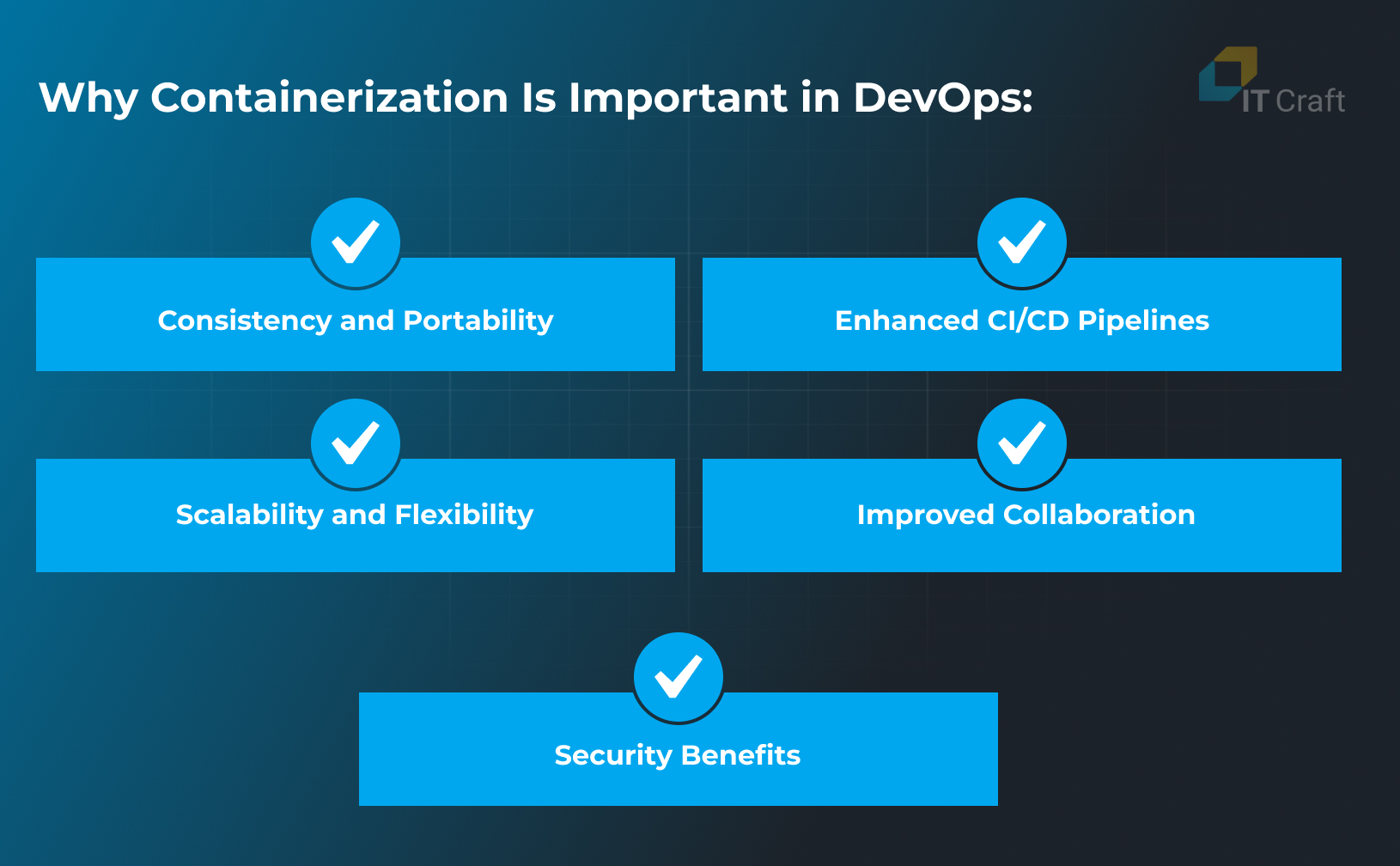Containerization is the key DevOps practice. It is focused on packaging app source code, all dependencies, and server configurations together. Containerization ensures efficient deployment across various system environments. It also speeds up deployment and improves app scalability.
Why Containerization Is Important in DevOps:

Consistency and Portability
- Each container includes all elements required for app deployment, providing identical app behavior across systems, regardless of hardware.
- By providing the same environment configuration for everyone, they solve the issue when an app works on the developer’s hardware but not on the production server.
- Because of their small size and high portability, containers can be easily transferred to any infrastructure, including bare-metal servers, virtual machines, or cloud hosting.
- Containers reduce drift between production and non-production environments.
Enhanced CI/CD Pipelines
- Containers are the key element of CI/CD pipelines ensuring environment consistency for development, testing, and deployment stages.
- Containers simplify dependency management due to their small size and immutability. They decrease build and deployment times.
- The seamless integration of containerization tools, such as Kubernetes, and CI/CD tools (Jenkins, ArgoCD, GitHub Action) within a unified process allows for efficient automation and and highlights the benefits of continuous delivery in DevOps.
Scalability and Flexibility
- The project team can easily start and stop containers due to their light weight, which is why they become the best option for quick up- and downscaling.
- Using containers, DevOps engineers can quickly optimize resource management and meet user needs.
- Container orchestration platforms such as Kubernetes app scaling, load balancing, and deployment management. The applications remain responsive without creating excessive workload on the project team.
Improved Collaboration
- Containerization decreases the chances of infrastructure conflicts when the source code is transferred from one software development stage to another.
- Containerization also streamlines collaboration by enabling developers to work in isolated environments, which are then reproduced for testers and production deployments.
- Containers allow for versioning and storing them in registries to help all team members use the correct build throughout the development lifecycle and support Agile for DevOps practices.
Security Benefits
- Because containers are isolated, there is a low probability that vulnerabilities will affect other containers or the hosting service.
- The use of containerized environments fits in well with many security best practices, including least privilege, regular vulnerability scanning, and strict access management.
Conclusion
Using containerization in DevOps enhances security, fault tolerance, and scalability.
Containerization is an integral part of our top-notch DevOps services, enabling enhanced collaboration on project development, testing, release, and maintenance, and resulting in productive, consistent, and aligned software development and maintenance workflows.




